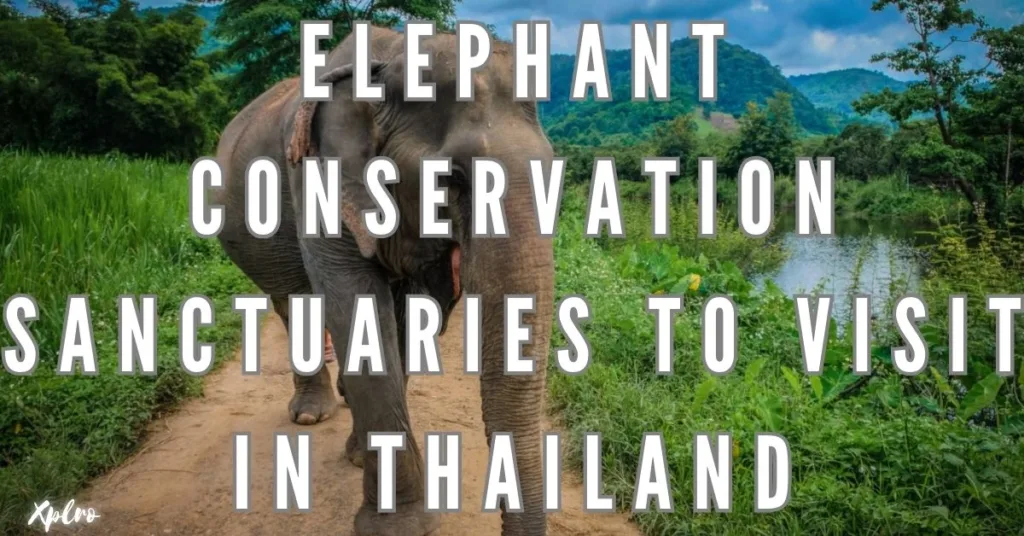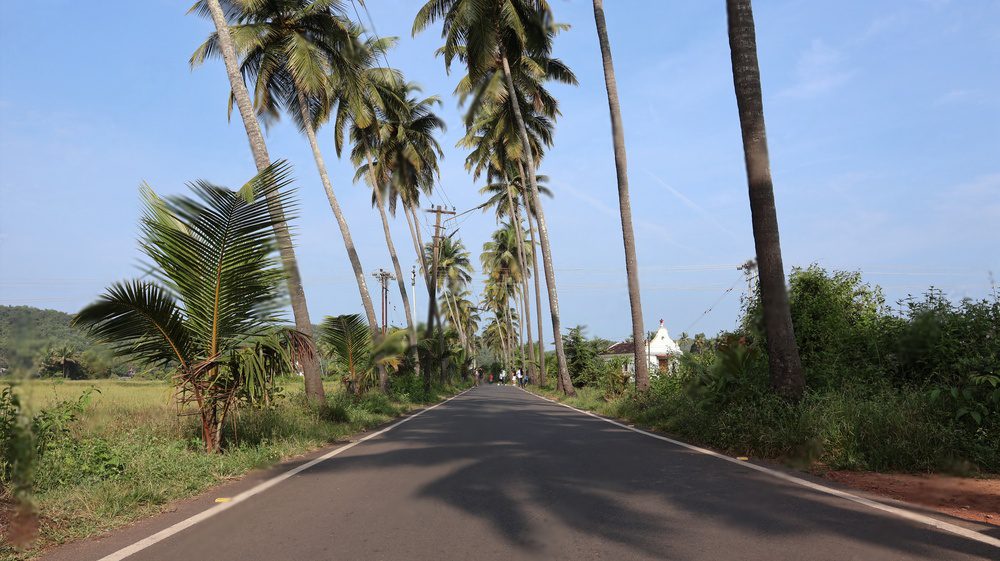Elephant Conservation Sanctuaries to Visit in Thailand; Elephants are a beloved symbol of Thailand, known for their majestic beauty and cultural significance. Sadly, many elephants in Thailand have suffered mistreatment in the past, particularly in the tourism and logging industries. Thankfully, Thailand has emerged as a leader in ethical elephant conservation, offering sanctuary experiences where these gentle giants can live freely and naturally. This guide will introduce you to the top elephant conservation sanctuaries in Thailand. By visiting these sanctuaries, you can support ethical wildlife tourism and witness the beauty of these magnificent creatures firsthand.
Why Visit an Elephant Sanctuary in Thailand?
Elephant sanctuaries in Thailand provide a safe haven for rescued elephants who have suffered from years of exploitation in the tourism industry or as working animals. These sanctuaries focus on the well-being of elephants, offering them a natural and safe environment. By visiting these sanctuaries, you’re supporting ethical practices, contributing to the welfare of elephants, and raising awareness about conservation efforts.
1. Elephant Nature Park (Chiang Mai)
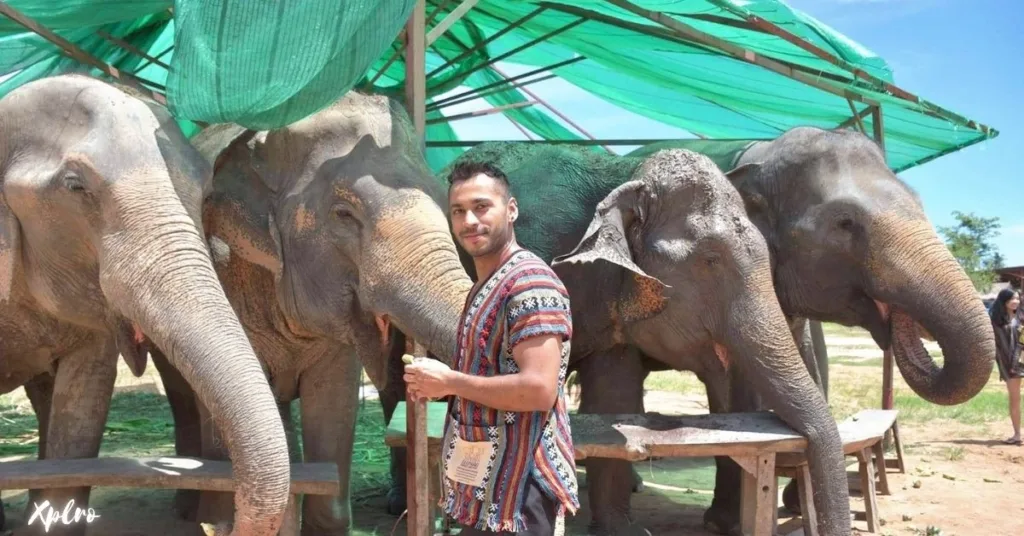

Elephant Nature Park, nestled in the serene landscapes of Chiang Mai, is a haven for rescued elephants. Founded by the passionate animal rights activist Lek Chailert, this sanctuary offers a safe and nurturing environment for these gentle giants.
Ethical Elephant Interactions
Unlike traditional elephant camps, Elephant Nature Park prioritizes ethical interactions with elephants. Visitors have the opportunity to:
- Feed the elephants: Provide them with nutritious meals.
- Bathe the elephants: Help clean these majestic creatures.
- Walk with the elephants: Enjoy a peaceful stroll through the park.
Conservation Efforts
The park is actively involved in several conservation initiatives:
- Rescue and Rehabilitation: Rescuing elephants from abusive situations and providing them with necessary care.
- Education and Awareness: Spreading awareness about elephant conservation and ethical tourism.
- Habitat Preservation: Protecting the natural habitats of elephants.
Best Time to Visit:
The ideal time to visit Elephant Nature Park is during the cooler months, from November to February.
A Memorable Experience
By visiting Elephant Nature Park, you can contribute to the welfare of these magnificent animals and experience the joy of ethical wildlife tourism.
2. Elephant Hills (Khao Sok National Park)
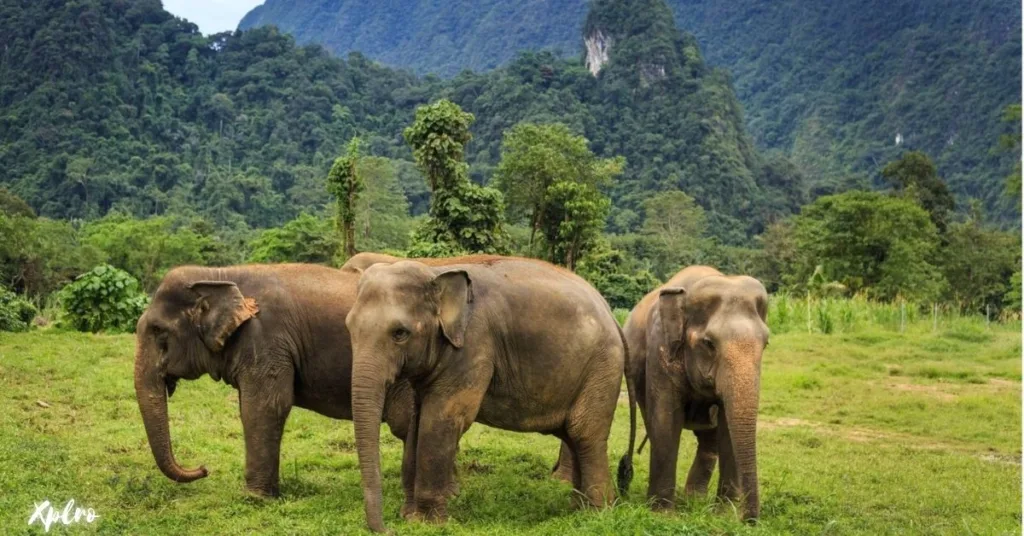

Elephant Hills, nestled within the lush Khao Sok National Park in Surat Thani Province, offers a unique and ethical elephant experience. This luxury eco-camp prioritizes the well-being of elephants and promotes responsible tourism.
Ethical Elephant Interactions
Guests at Elephant Hills can engage in a variety of ethical activities:
- Feeding Elephants: Provide these gentle giants with nutritious meals.
- Walking with Elephants: Enjoy peaceful strolls through the jungle.
- Bathing Elephants: Help cool down the elephants in the river.
Unlike traditional elephant camps, Elephant Hills avoids any activities that may stress or harm the elephants, such as riding.
Conservation and Sustainability
Elephant Hills is committed to conservation and sustainability:
- Protecting the Environment: The camp supports the preservation of the natural habitat of elephants.
- Sustainable Tourism: Promoting responsible tourism practices that benefit local communities.
- Wildlife Awareness: Raising awareness about the importance of wildlife conservation.
Best Time to Visit:
The ideal time to visit Elephant Hills is during the dry season, from November to April.
3. Boon Lott’s Elephant Sanctuary (Sukhothai)
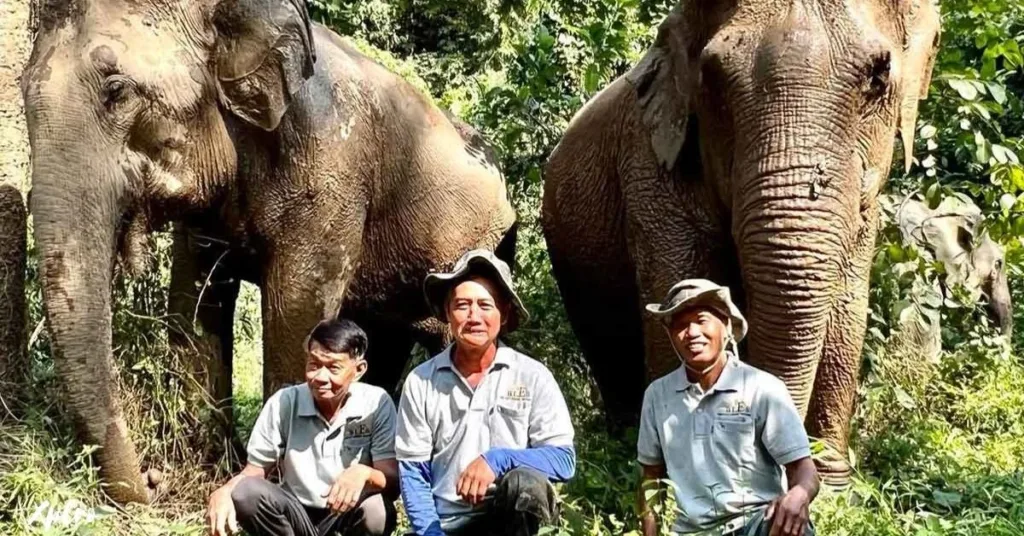

Boon Lott’s Elephant Sanctuary, nestled in the serene landscapes of Sukhothai Province, offers a tranquil haven for rescued elephants. Founded by British conservationist Katherine and her Thai husband, this sanctuary provides a loving home for elephants who have endured years of mistreatment.
Ethical Elephant Interactions
Visitors to Boon Lott’s can experience intimate and ethical interactions with elephants:
- Learn Their Stories: Understand the heartbreaking pasts of these rescued elephants.
- Nature Walks: Explore the beautiful surroundings with the elephants.
- Personalized Experiences: Enjoy small-group interactions for a more intimate connection.
Conservation and Rehabilitation
The sanctuary is dedicated to the well-being of elephants and the environment:
- Rehabilitation: Providing care and rehabilitation for rescued elephants.
- Reforestation: Protecting and restoring the natural habitat.
- Ethical Tourism: Promoting responsible tourism practices.
Best Time to Visit:
The ideal time to visit Boon Lott’s Elephant Sanctuary is during the dry season, from November to April.
4. Phuket Elephant Sanctuary (Phuket)
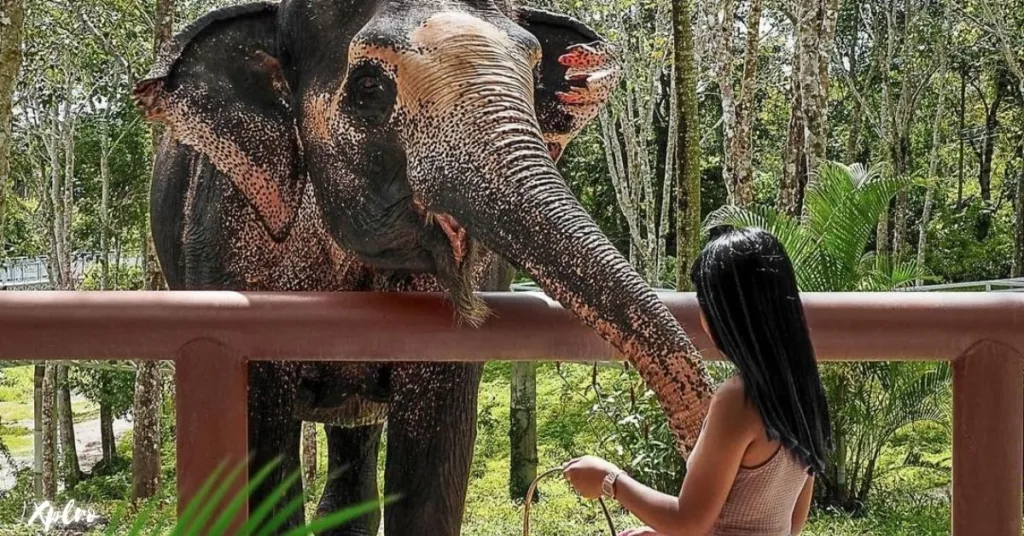

Located on the beautiful island of Phuket, the Phuket Elephant Sanctuary is Thailand’s pioneering ethical elephant sanctuary. This sanctuary provides a peaceful refuge for elephants rescued from the harsh realities of the logging and tourism industries.
Ethical Elephant Interactions
Visitors to the sanctuary can engage in a variety of ethical activities:
- Feeding Elephants: Provide nutritious food to these gentle giants.
- Walking with Elephants: Enjoy leisurely walks through the lush surroundings.
The sanctuary strictly adheres to ethical guidelines, ensuring that the elephants are not subjected to any form of abuse or exploitation. No rides or performances are offered, allowing for a truly authentic and compassionate experience.
Conservation Efforts
The Phuket Elephant Sanctuary is dedicated to elephant conservation and education:
- Elephant Welfare: Prioritizing the well-being of elephants through ethical care.
- Education and Awareness: Raising public awareness about elephant conservation and responsible tourism.
Best Time to Visit:
The ideal time to visit the Phuket Elephant Sanctuary is during the dry season, from November to March.
5. Elephant Sanctuary Chiang Mai (Chiang Mai)
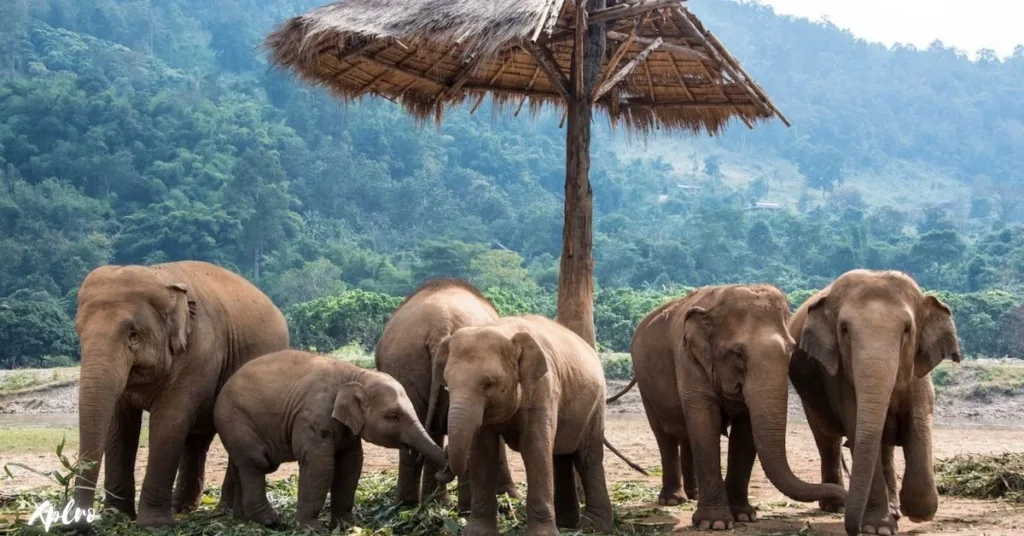

Nestled in the serene hills of Chiang Mai, Elephant Sanctuary Chiang Mai is a community-driven sanctuary dedicated to providing a peaceful haven for rescued elephants. This sanctuary offers a unique opportunity to interact with these gentle giants in a natural and ethical setting.
Ethical Elephant Interactions
Visitors to the sanctuary can engage in various ethical activities:
- Feeding Elephants: Provide nutritious food to the elephants.
- Bathing Elephants: Help cool down the elephants in the river.
- Walking with Elephants: Enjoy peaceful walks through the jungle.
The sanctuary prioritizes the well-being of the elephants, ensuring that all interactions are gentle and respectful.
Conservation Efforts
Elephant Sanctuary Chiang Mai is committed to elephant conservation and environmental sustainability:
- Ethical Tourism: Promoting responsible tourism practices.
- Wildlife Conservation: Protecting elephants and their natural habitat.
- Community Development: Supporting local communities through sustainable initiatives.
Best Time to Visit:
The ideal time to visit Elephant Sanctuary Chiang Mai is during the cooler months, from November to February.
6. Wildlife Friends Foundation Thailand (Petchaburi)
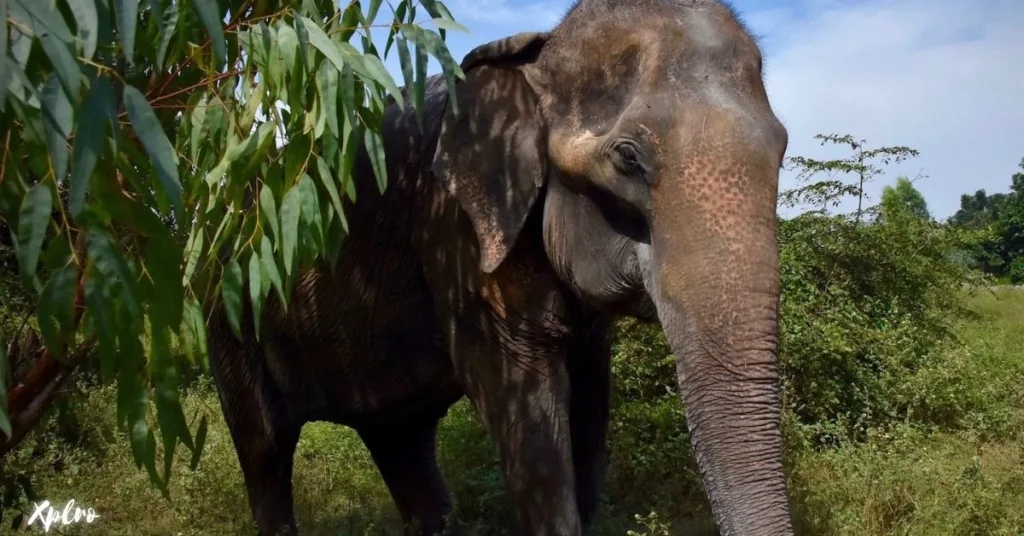

Wildlife Friends Foundation Thailand (WFFT), located in Petchaburi Province, is a dedicated sanctuary and rescue center for a variety of animals, including elephants, bears, and primates. The foundation’s mission is to provide a safe haven for these creatures, rescuing them from captivity and exploitation.
Ethical Animal Interactions
Visitors to WFFT can engage in ethical and educational experiences:
- Learn About Rescue Stories: Discover the heartbreaking pasts of the rescued animals.
- Feed the Elephants: Provide nutritious food to these gentle giants.
- Observe Natural Behavior: Witness the elephants in their natural environment.
Conservation and Rescue
WFFT is actively involved in various conservation efforts:
- Rescuing Animals: Saving animals from illegal wildlife trade, logging, and tourism.
- Providing Sanctuary: Offering a safe and nurturing environment for rescued animals.
- Education and Awareness: Promoting wildlife conservation and ethical treatment of animals.
Best Time to Visit:
The ideal time to visit WFFT is during the dry season, from November to April.
7. Elephant Jungle Sanctuary (Chiang Mai and Pattaya)
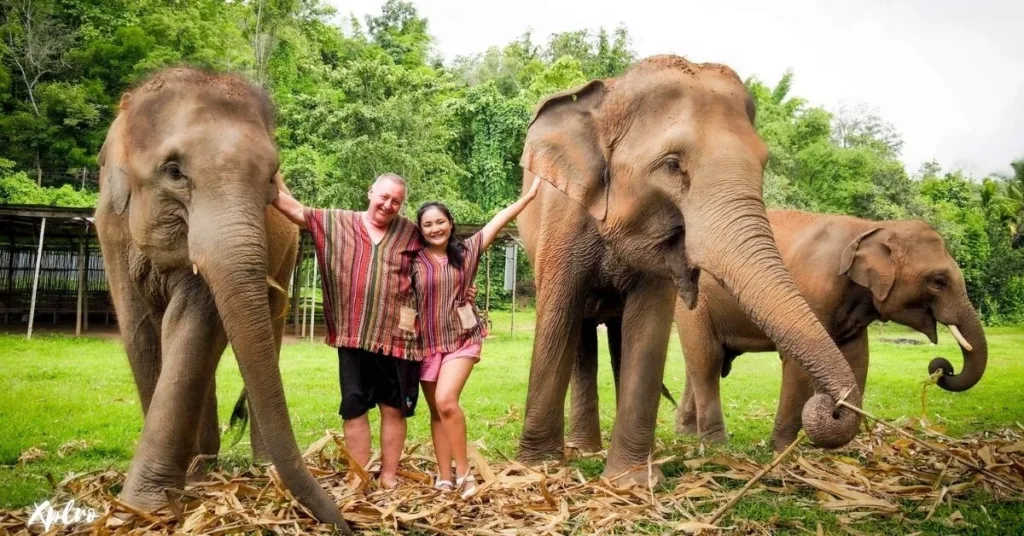

Elephant Jungle Sanctuary, with locations in Chiang Mai and Pattaya, offers an ethical and enriching elephant experience. This sanctuary is dedicated to rescuing elephants from captivity and providing them with a natural environment where they can roam freely and interact with visitors on their own terms.
Ethical Elephant Interactions
Visitors to Elephant Jungle Sanctuary can engage in a variety of ethical activities:
- Feeding Elephants: Provide nutritious food to the elephants.
- Bathing Elephants: Help cool down the elephants in the river.
- Walking with Elephants: Enjoy peaceful walks through the jungle.
The sanctuary ensures that all interactions are respectful and prioritize the well-being of the elephants, avoiding any form of exploitation such as riding or performances.
Conservation Efforts
Elephant Jungle Sanctuary is committed to elephant conservation and education:
- Rescue and Rehabilitation: Rescuing elephants from captivity and providing them with necessary care.
- Education and Awareness: Raising public awareness about elephant welfare and ethical tourism.
- Habitat Preservation: Protecting the natural habitat of elephants.
Best Time to Visit:
The ideal time to visit Elephant Jungle Sanctuary is during the dry season, from November to April.
How to Choose the Right Elephant Conservation Sanctuaries to Visit in Thailand
When planning a visit to an elephant sanctuary in Thailand, it’s crucial to select one that adheres to ethical conservation practices. Look for sanctuaries that:
- Avoid Exploitative Activities: Do not offer activities like elephant rides or performances, as these can be harmful to the animals.
- Prioritize Conservation: Focus on rehabilitation, conservation, and education initiatives.
- Respect Animal Welfare: Prioritize the well-being of elephants by providing them with a natural environment.
- Promote Transparency: Maintain transparency in their operations and animal care practices.
Conclusion
Elephant sanctuaries in Thailand offer a unique opportunity to observe these magnificent creatures in a responsible and ethical way. When choosing a sanctuary, prioritize those that avoid exploitative practices like elephant rides and shows. Instead, opt for sanctuaries like Elephant Nature Park, Elephant Jungle Sanctuary, Boon Lott’s Elephant Sanctuary, Following Giants, and Phangan Elephant Sanctuary, which focus on conservation, rehabilitation, and providing a natural environment for elephants. For detailed information and recommendations on ethical elephant sanctuaries in Thailand, check out Xplro.com. By making informed choices and supporting ethical sanctuaries, you can contribute to the well-being of these incredible animals and ensure their survival for generations to come.
FAQs
1. Why should I consider visiting an elephant sanctuary in Thailand?
- Visiting an elephant sanctuary allows you to observe these incredible animals in their natural environment while supporting ethical tourism. Sanctuaries focus on the well-being of rescued elephants, helping them recover from exploitation.
2. How is an elephant sanctuary different from a traditional elephant camp?
- Unlike traditional camps, sanctuaries prioritize the elephants’ health and happiness. They don’t offer rides or performances, focusing instead on rehabilitation and creating a natural, stress-free environment for the animals.
3. Do ethical elephant sanctuaries offer elephant rides?
- No, responsible sanctuaries do not provide elephant rides. They focus on ethical interactions, allowing elephants to live freely while visitors observe or participate in activities like feeding and walking alongside them.
4. How can I tell if an elephant sanctuary is truly ethical?
- Ethical sanctuaries avoid activities like riding or tricks. They emphasize natural behavior, provide open spaces for the elephants, and focus on education and conservation. Transparency about their care practices is a good indicator of their integrity.
5. What can I do at an elephant sanctuary?
- Typical activities include feeding the elephants, observing them in their habitat, and possibly helping with their care. Some sanctuaries also allow visitors to participate in bathing the elephants or join guided nature walks.
6. Are elephant sanctuaries safe to visit?
- Yes, visiting a reputable sanctuary is safe. Trained staff guide all activities, ensuring both visitor safety and the well-being of the elephants. Following the staff’s instructions helps maintain a respectful environment.
7. Can I volunteer at an elephant sanctuary in Thailand?
- Yes, many sanctuaries offer volunteer opportunities. Volunteers often help with daily tasks such as preparing food, cleaning habitats, and assisting with educational programs. It’s a meaningful way to contribute to elephant welfare.
8. What should I pack for a trip to an elephant sanctuary?
- Bring comfortable clothes, sturdy shoes, sunscreen, insect repellent, and a hat. If you’ll be bathing elephants, pack a swimsuit and towel. A reusable water bottle and a camera to capture memories are also recommended.
9. Are elephant sanctuaries suitable for children?
- Most sanctuaries welcome families and offer educational experiences suitable for children. It’s best to check specific age guidelines in advance, as some activities may have restrictions for younger visitors.
10. How do elephant sanctuaries help with conservation?
- Sanctuaries rescue elephants from harsh conditions, provide medical care, and offer a safe environment. They also educate the public about elephant welfare and often support broader conservation initiatives, including habitat protection.
11. How much does it cost to visit an elephant sanctuary?
- Prices vary depending on the sanctuary and the activities offered. On average, expect to pay between $50 and $150 USD for a day visit. These fees support the care and rehabilitation of the elephants.
12. How can I support elephant conservation beyond visiting a sanctuary?
- You can contribute by donating to reputable sanctuaries, choosing ethical tourism options, and raising awareness about elephant welfare. Avoid any attractions that exploit animals for entertainment.
